Roxy and Bobby returned home this week. For Christmas, you might say. And indeed, they have, although they likely haven’t a clue about the significance of the 25th of December.
It’s because the equine brain isn’t founded on watches and calendars. Instead, they build extensive maps made 3 dimensional by sight, sound and smell. Their knowledge of the language of landscape exceeds ours, as it was built, designed for the Asian steppe—vast regions of grass and mountain thousands of years before the likes of Atilla and Genghis subjugated them to be their vehicles of conquest and burden.
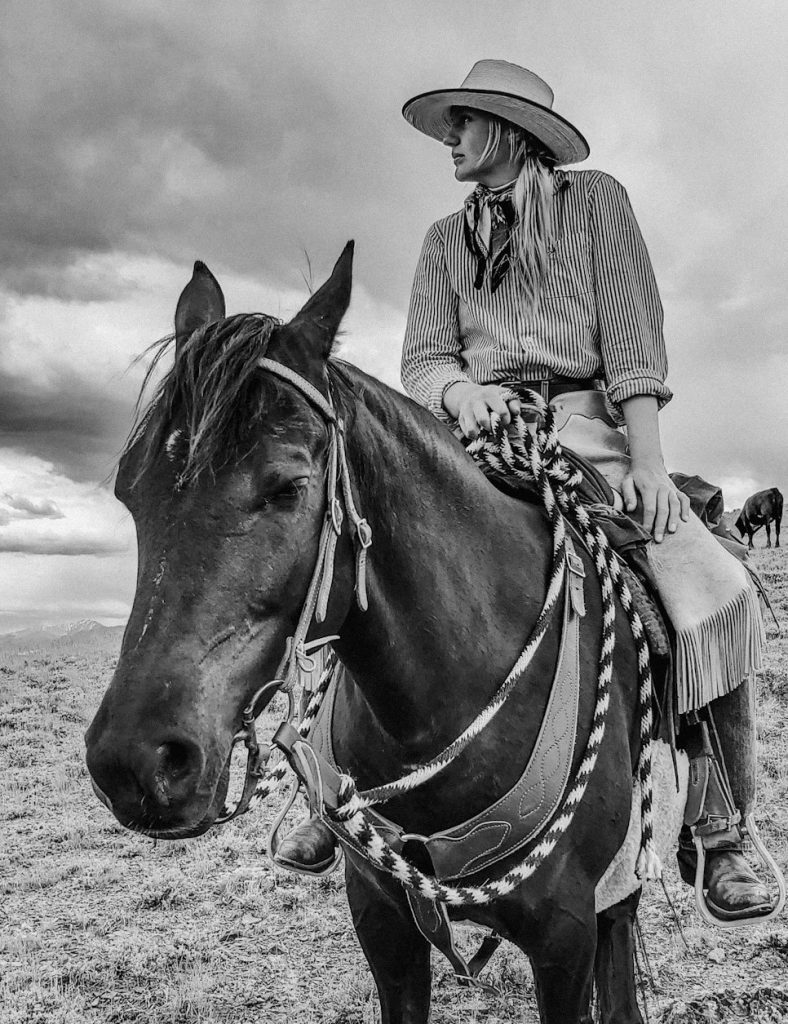
Bobbi and Roxy have been off the ranch for months. We pulled them practically right off the range and loaned them to a Montana friend who needed a few more mares for his backcountry outfitting string. He’d be taking them far into the depths of the Idaho wilderness. This is designated wilderness officially known as the Frank Church River of No Return Wilderness…the largest wilderness in the lower 48 states.
You may call it vast.
I’ve flown over it a number of times, and it starts just beyond our Hat Creek Ranges, covering hundreds of square miles in a tangle of wild rivers and deep canyons shoved into rugged peaks and endless forests. Caryl and I used to spend weeks up there fishing for cutthroat trout on snow-bounded remote mountain lakes when we were first married. We would see no-one. But those fat red-fleshed mountain lake fish were legendary.
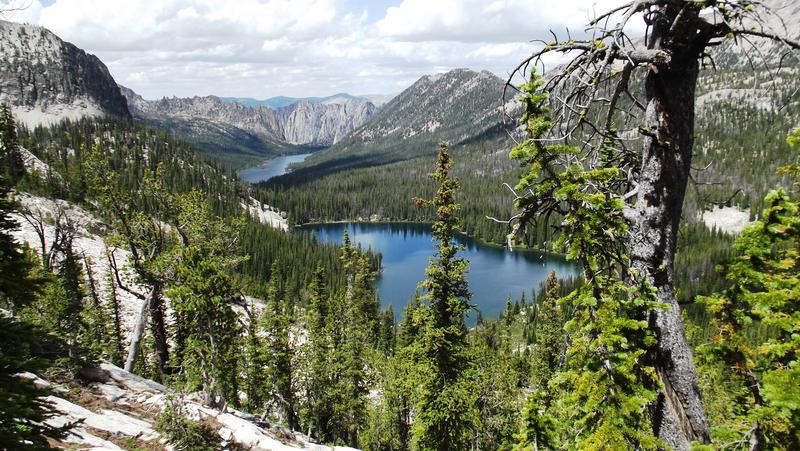
Bobby and Roxy went deep into the heart of the Salmon River Canyon country, swimming the Main Salmon river during the fall swell with 30 other horses in pack strings. They were carrying gear up into the remote region of Chamberlin Basin, the backcountry headquarters for our friend’s outfit.
I’ve always wanted to head out to Chamberlin myself; it’s a little ironic that two of my horses were able to beat me there first.
Last Saturday was the day to rendezvous at the Carmen, Idaho community corrals to get our horses back. It’s just down the road from the Carmen Grange hall, where Caryl and I are still members, as we used to live in Carmen when we first married. We lived in a ramshackle homestead log cabin there for 6 winters.
I say ‘winters’ instead of ‘years’ quite intentionally. It’s because those cold months, up that timbered and near-sunless canyon called Freeman Creek (just below the sheer schist face of the imposing peak called Freeman, prominent peak along the Continental Divide) were the most memorable part of those first years.
They were a little brutal. It was cold. Subzero brittle cold for months. Winds off the alpine tundra of the Divide froze pipes rock solid, and blew drifts of snow into our cabin through cracks in the log chinking. I think we were living on the heat of love there, because there sure didn’t seem to be any coming out of that wood stove. I remember one cold night we got it up to a record 75 degrees in the “stove room,” right between the living room and the bathroom (they were in the 40s). Outside it was 35 below zero. The difference was the real record. One hundred and ten degrees between outside and inside.
So I was very familiar with the Carmen corrals as I came for my horses. The corrals were actually at the Broken Pick Ranch’s headquarters (their cattle brand is just that—a broken pickax—if you can picture that), and as I checked the gates out on the single digit rime crusted morning, a Carhartt overalls wearing cowboy came out of the barn.
It was Bob Morton. He grinned when he recognized me. We became friends about 35 years ago, and had both seen a lot of change in Carmen Creek, the beautiful long valley that we both called home years ago (Freeman Creek flows into Carmen).
“You here for the horse rendezvous?” Bob asked. He knew the drill. Every year at this time, outfitters, ranchers and horse keepers trade stock out since hunting and packing season is over. Horses—the conveyance that makes remote camps and carrying people around in the wilderness possible—find their way back to their wintering grounds.
“Yep. Seen anyone else show yet?”
“Nope. Probably too early.”
While Bob and I compared notes (we don’t see each other very often), trailer loads of horses showed up one by one, and empty trailers as well. In a few minutes, there were nearly 30 horses in the corrals getting sorted and spoken for. All of them were noticeably muscled from the long days they had been through in rough country. No fatso barnyard horses here. These were lean and muscle-bound mountain horses who had walked, carrying hunters and gear through thousands of miles in some of the most mountain-bound country in the US.
I spotted Tom, outfitter from Montana. He had my two mares
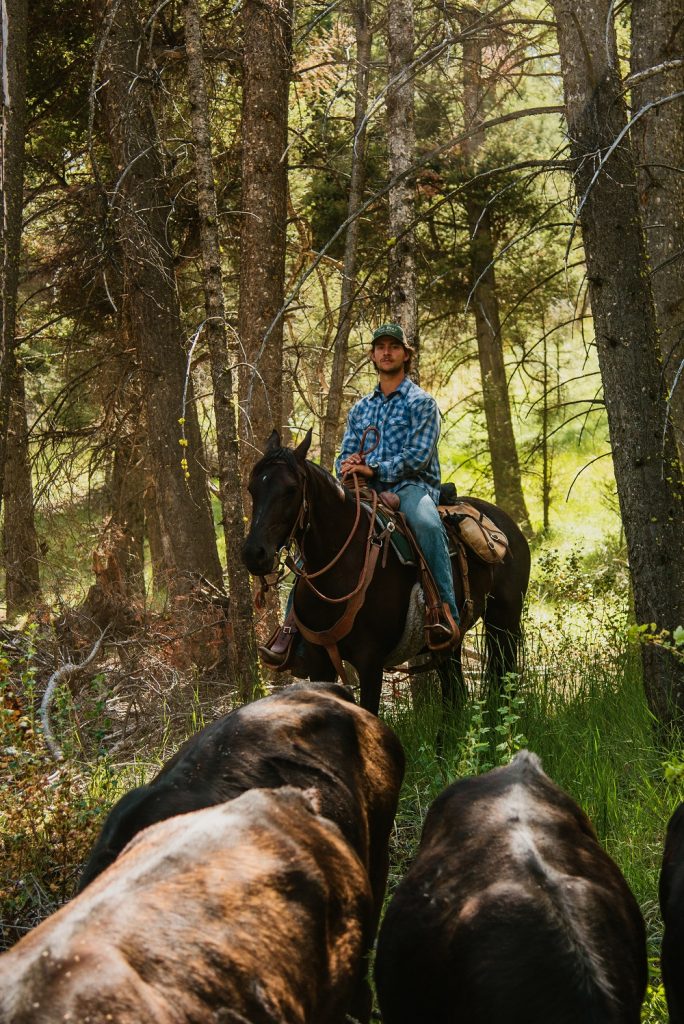
Tom is a mare man. The other outfitter is a gelding man. The two men are friends, but can’t agree on the gender of horse that works best for their backcountry operation. I agreed with points on both sides.
“How did they do, Tom?”
“Oh, they did really well. Not one problem. Although you were definitely right about the black (Bobbi). She certainly can be a total bitch. The guys had to watch her. But she’s dang solid.”
“And your weather?”
“Brutal. First blizzard hit at the end of August. Then subzero in October with relentless wind. Trails drifted in with deep snow for miles. Camp locked down in wall tents for days on end, but elk hunting went alright once the fronts passed through.”
I made eye contact with my Bobbi and Rox. They both looked fit and a little dirty, but I was glad to see their eyes bright and coats healthy. They caught easily, and literally stuffed their heads eagerly into the rope halters. They wanted caught, and knew I’d come to bring them home.
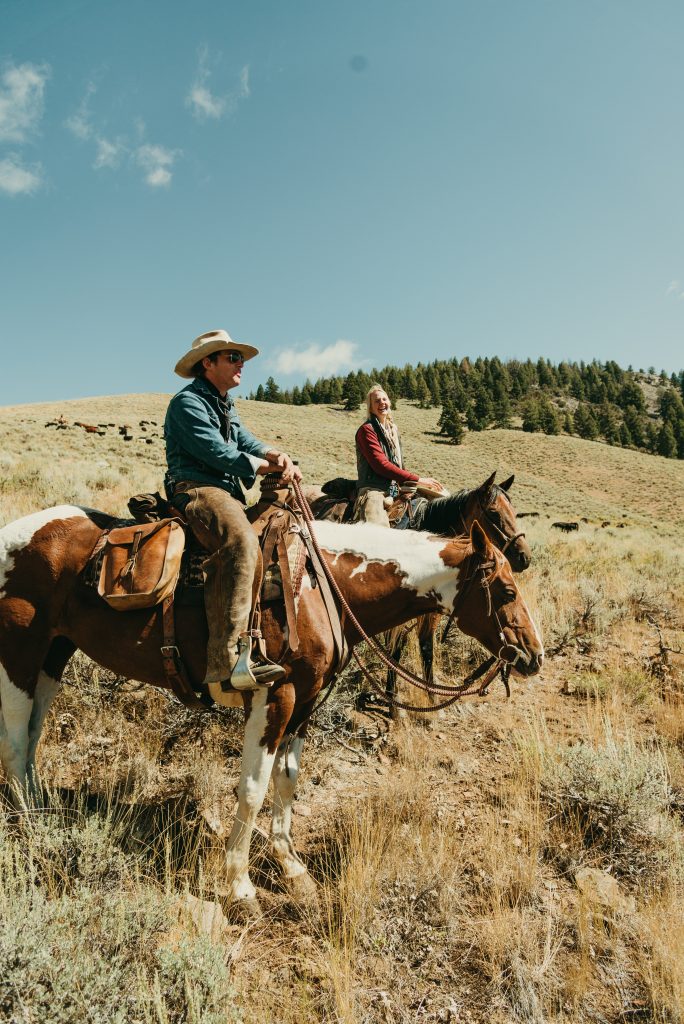
I opened my trailer gate for them, and they almost ran into the long box of the trailer, deeply sniffing, then grabbing a bite of hay I had thrown in there before I left the ranch in the predawn.
I think they saw home in that hay, in the scent of land and flavor of soils. They knew. And I think they knew that I I knew. Their kind eyes met mine, my chest went surprisingly tight with a love for them and what they’ve been through over the years with our family and friends. They’ve cared for my kids, and carried many a rider along steep, rocky trails.
We’ve covered ground together.
And without waiting anymore, we left for the ranch. In just a little over an hour, with the sun filling the upper snowy basins with alpenglow pink, I pulled over to a gate on the far side of the ranch. They inhaled deeply of the air they knew as they patiently waited for me to undo their rope halters, and then trotted off together across the Alderspring prairie to find their friends. There were whinnies of greeting (and some of the usual angry squeals, especially from Bobbi), as the rest of the herd came running, heads up, to greet them.
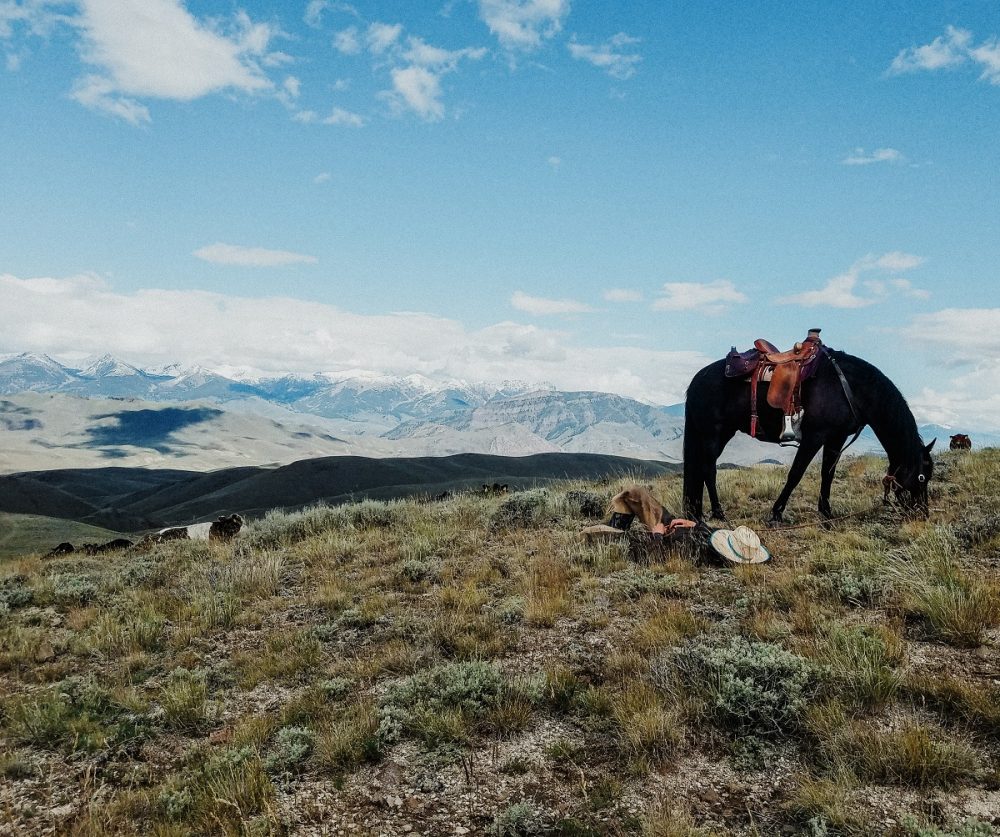
Bobbi and Roxy had come home, and all was right. Everyone now had returned from the ranges, now snowbound all around us in the high country, and I was so grateful to watch them trot off light-footed and joyful to be on the soft grass of home.
These horses, animals, are part of us. They have our hearts.
Happy Trails.
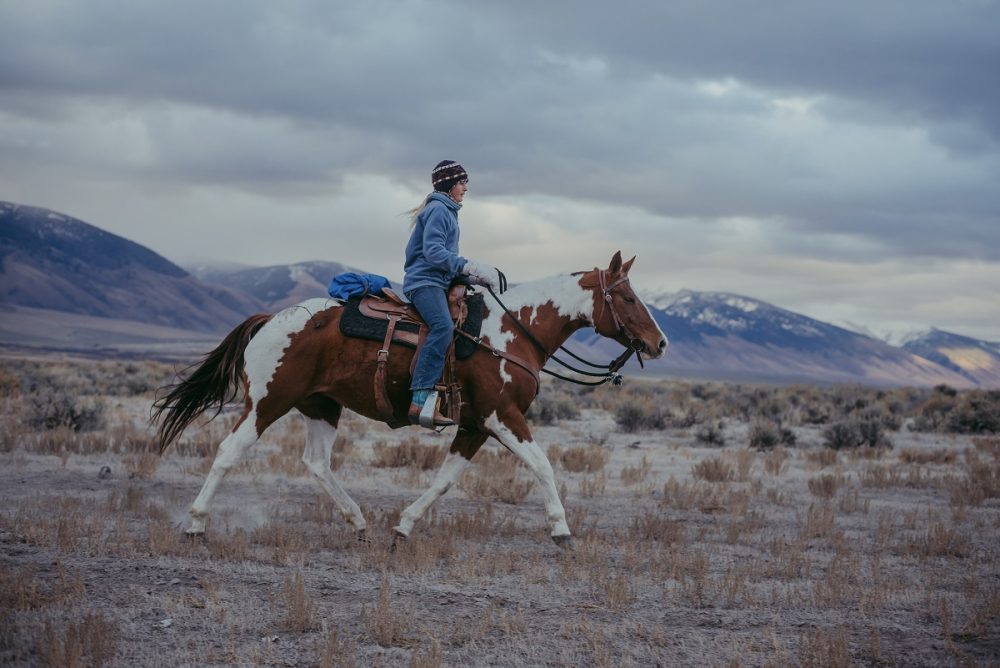



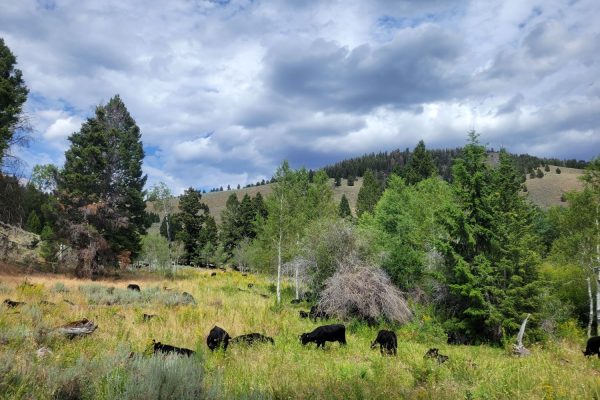
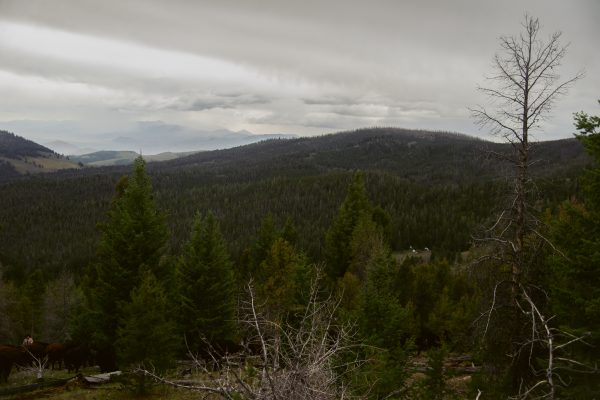

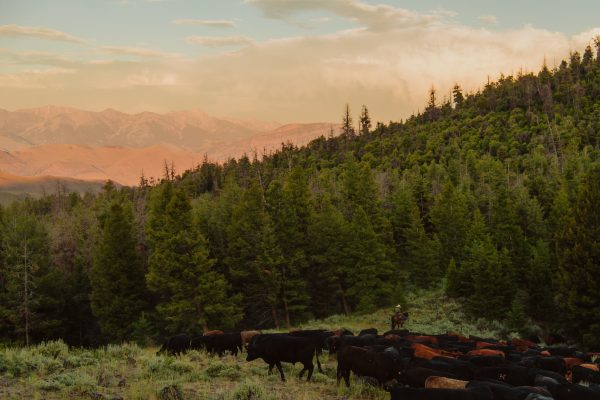
Donna S.
Beautifully written story. I am feeling the love as if the horses and the land are my own!